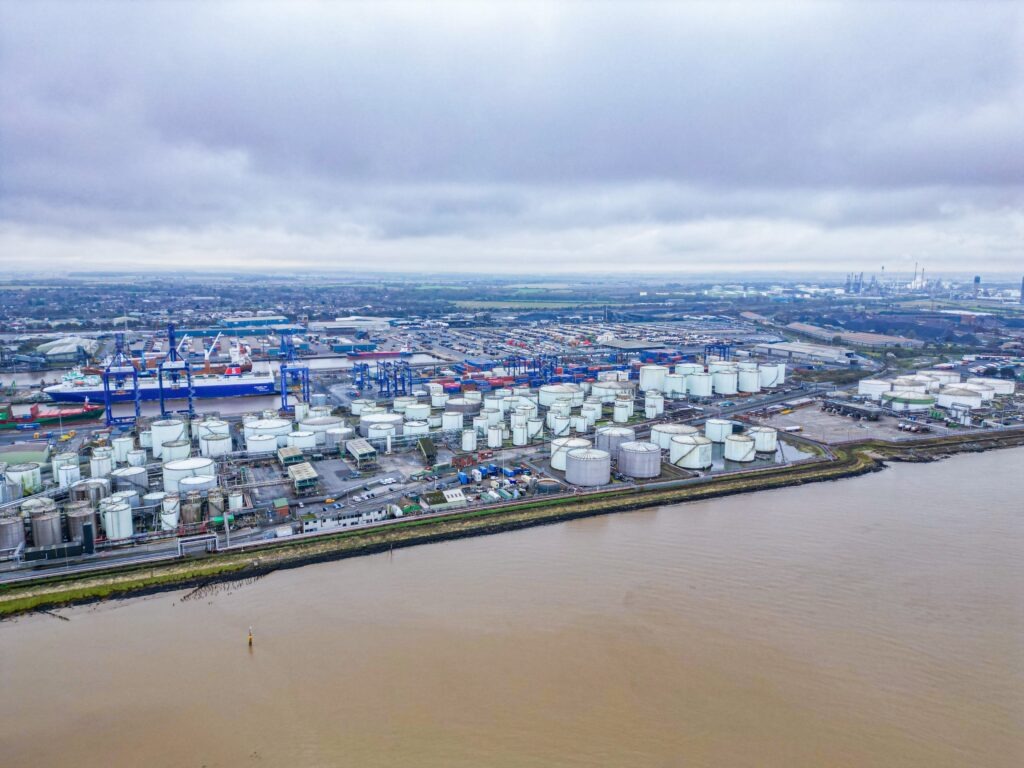Exolum has initiated the world’s first commercial-scale demonstration of green hydrogen transport and storage using Liquid Organic Hydrogen Carriers (LOHC) within existing oil terminal infrastructure. The groundbreaking project, carried out at Immingham, the UK’s largest freight port, introduces a new model for fast, flexible, and efficient hydrogen logistics.
This innovative approach uses Exolum’s extensive fuel storage and pipeline network to distribute hydrogen closer to high-demand locations such as ports and industrial hubs, offering a scalable solution that adapts to the growing needs of the hydrogen market.
What Are LOHCs?
LOHCs are organic compounds capable of absorbing and releasing hydrogen through chemical reactions, allowing hydrogen to be stored and transported safely in liquid form. This method minimizes risks and leverages existing oil infrastructure, paving the way for the transition to green hydrogen without requiring entirely new logistics systems.
Exolum, a global leader in liquid logistics, operates one of the world’s most extensive fuel pipeline and storage networks, supplying fuel for nearly 40% of all UK flights annually.
A Sustainable Step for Hydrogen Logistics
Ignacio Casajús, Exolum’s Global Strategy & Growth Lead, highlighted the project’s importance:
“Our pioneering initiative offers a practical, safe, and cost-effective method of distributing green hydrogen that aligns with current demand. By repurposing our logistics network—one of the most efficient globally—we can drive decarbonization and diversify energy sources without massive new infrastructure investments.”
UK Government Support and Pilot Overview
The UK government has backed the project with £505,000 through Innovate UK’s Hydrogen Storage and Distribution Supply Chain Collaborative R&D programme.
Key project details:
- Pipeline Trial: Transporting 400 cubic meters of LOHC containing 20 tonnes of hydrogen through a 1.5 km pipeline at Immingham.
- Energy Impact: Equivalent to fueling a hydrogen-powered passenger car for 2 million kilometers.
- Validation: Laboratory tests will ensure LOHC quality and reliability throughout the process.
- Outcomes: A scientific study on the costs, benefits, and efficiency of using LOHC for hydrogen storage and transport will be published in early 2025.
Contributing to the UK’s Energy Goals
Exolum estimates its UK facilities could handle 4.6 TWh of hydrogen annually, meeting 30% of the UK government’s forecasted hydrogen demand for 2030. The project aligns with the UK’s Clean Power Mission 2030, which emphasizes reducing reliance on underground storage by positioning terminals closer to consumption points.
Broader Green Hydrogen Initiatives
Exolum is involved in several green hydrogen projects:
- Tees Valley Hydrogen Vehicle Ecosystem: Developing a production plant and refueling station at Stockton-on-Tees, powered by renewable electricity.
- Madrid Hydrogen Mobility Plant: Operating Spain’s first integrated green hydrogen production and refueling facility for heavy transport vehicles, supporting road logistics decarbonization.
- Research Consortia: Advancing renewable hydrogen storage and distribution technologies in initiatives like Regenera and GreenH2Pipes.
A Vision for a Decarbonized Future
By repurposing fossil fuel infrastructure, Exolum’s pioneering use of LOHC technology represents a transformative step in green hydrogen logistics. This project not only accelerates the energy transition but also showcases the potential for scalable, adaptable, and efficient solutions to meet growing hydrogen demand across Europe.


